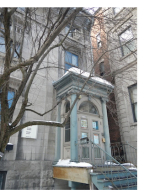Select a period to accelerate your research:
2020 | 2019 | 2018 | 2017 | 2016 | 2015 | 2014 | 2013 | 2012 | 2011
2020
The CIRM team welcomes new members! Elissa Kayal joins us as administrative assistant and coordinator of the McConnell Professor of Practice Program, Karolina Roman becomes editorial assistant and Julie Levasseur co-manages the centre's social media and Website.
s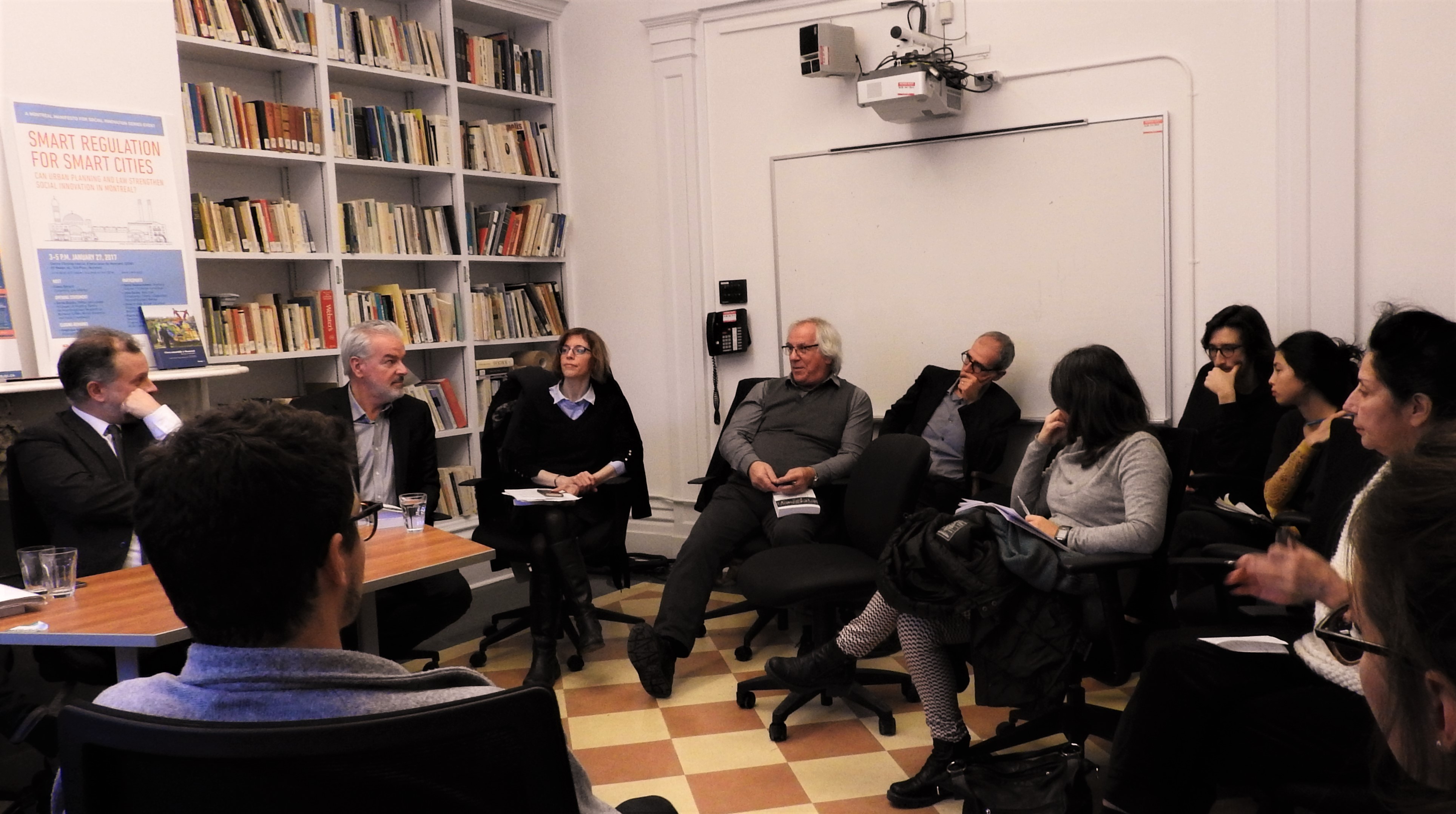
2019
In March 2019, CIRM is pleased to welcome researchers Lysandre Champagne and Julie Ravary-Pilon as part of the BMO Fellowhip. Under the supervision of Professor Marion Roger, Mrs. Ravary-Pilon starts a research project on the underrepresentation of women in Montreal's toponymy, specifically regarding Montreal's metro stations. Her action-research at CIRM aims to produce a revisited map of the metro through intersectional feminist toponymy, in collaboration with local actors.
Ana Brandusescu becomes the McConnell Professor of Practice, in partnership with Open North. Her objective for the year is to design and implement a research program on artificial intelligence, its effects on institutions as well as the engagement possibilities afforded by its implementation. Moreover, her project aims to establish intersectoral relationships between implementers of this technology and researchers who analyze its socioeconomic consequences. She further provides the Observatory of Montreal's Narratives with her expertise in the fields of digital rights, citizen participation, and emerging technologies.
CIRM receives a mandate from the city of Montreal, to carry out a project on the implementation of the Politique de l'enfant's five intervention axes "Naître, grandir, s'épanouir à Montréal : de l'enfance à l'adolescence." CIRM's role will be to create an advisory committee to guide the city on actions to take to contribute to the wellbeing of children on its territory. Pascal Brissette (CIRM Director) leads the committee and brought together experts coming from Montreal's various institutions. To learn more about the researchers partaking in the advisory committee, please follow this link.
In October 2019, Ottilia Scott joins the CIRM team as community manager: her tasks include managing the social media and the Website, as well as producing the newsletter.
The center carries on with its seminar series and supports multiple conferences, thus offering a space to its members and the Montreal community to exchange with researchers, authors, and representatives of communities and municipalities.
CIRM seminars of the year 2019
- November 18: Julie Burelle « Encounters on Contested Lands : indigenous performances of sovereignty and nationhood in Quebec », organized with the Indigenous Studies Program of McGill University.
- October 11: Richard Shearmur et Gérard Beaudet « L'innovation municipale : sortir des sentiers battus »
- April 3 : Frédéric Dejean « Récits du coeur. Carnets de migration à Montréal »
- 29 mars : Kevin Manaugh et Hoi Kong « Towards Equity and Inclusion in Canadian Cities: Lessons from Critical Praxis-Oriented Research »
Événements soutenus par le CRIEM
- January 15 : Conference by Lili-Anne Pereša, President and Executive Directo of Centraide du Grand Montréal, as part of the series « Montreal as seen by... ».
- January 29 : Conference by Mickaël Theimer, photographer and founder of Portraits de Montréal, as part of the series « Montreal as seen by... ».
- January 31 : Conference by Cathy Wong, President of the City Council of the City of Montreal, as part of the series « Montreal as seen by... ».
- February 7 : Conference by Alice Miquet, President of the Montreal Youth Council, as part of the series « Montreal as seen by... ».
- February 12 : Conference by Marie-Josée Parent, advisor at the city of Montreal, and person in charge of the project regarding indigenous reconciliation, as part of the series « Montreal as seen by... ».
- February 12 : Conference-experience « Montréal : la cité des cités / Pointe Saint-Charles » - field trip to Bâtiment 7 and roundtable moderated by Richard Shearmur.
- March 28 : Conference by Anne-Marie Jean, President of the Conseil des arts et des lettres, as part of the series « Montreal as seen by... ».
- May 7 : Conference-experience « Communiquer » as part of the series Aménager - Expérience et innovation d'un quartier, led in partnership with the Quartier de l'innovation - visit of DARE-DARE center and roundtable at the Georges-Vanier Cultural Center, moderated by Christian Poirier (INRS).
- June 4 : Participative conference « Émouvoir » organized with the Quartier de l'innovation, as part of the series Aménager.
- September 25 : Conference by Teressa Scassa « Data Governance for Sharing Smart City Data », organized with the Centre for Intellectual Property Policy (CIPP).
- October 16-18 : Workshop-conference « Se faire une place dans la cité : la participation des groupes religieux à la vie urbaine », organized by professors Frédéric Dejean et Annick Germain.
- October 22 : Conference by Matthew Pearce, President and CEO of the Old Brewery Mission, as part of the series « Montreal as seen by... ».
- October 24 : Conference by Eda Holmes, Artistic and Executive Director of the Centaur Theater, as part of the series « Montreal as seen by... ».
- November 19 : Conference by Richard D. Daneau, Executive Director of Moisson Montréal, as part of the series « Montreal as seen by... ».
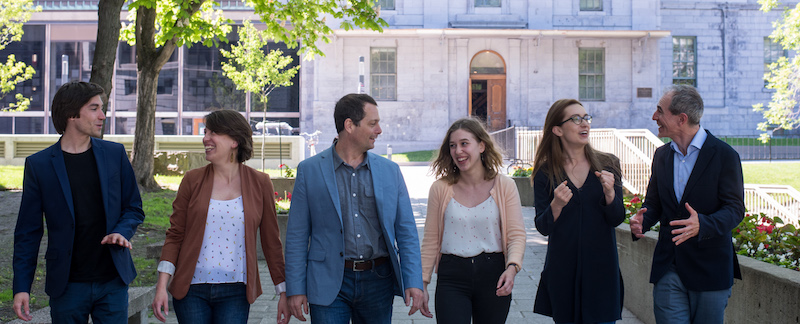
2018
Pascal Brissette's mandate as Director of CIRM has been extended until May 2020. Gorka Espiau is invited to return to his position as CIRM's McConnell Foundation Professor of Practice for a third and final year.
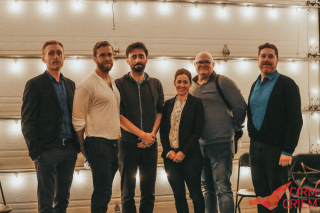 CIRM and the Quartier de l’innovation de Montréal (QI) launch a new kind of experiential meetings focusing on different aspects of shaping neighbourhoods, from local initiatives to public policies: Shaping Neighbourhoods – Experience and Innovation is a series of “experiential conferences” that incites communities to (re)discover urban planning projects that are happening in their neighborhood in order to engage in conversations about developing community projects, university research, and municipal initiatives that transform their living environment. The series unfolds in three workshops: Build (on the development and shaping of public common spaces), Inhabit (on the design of habitable, innovative places from the point of view of energy conservation and social inclusion) and Belong (on the preservation of heritage buildings despite disruptions on the urban scene).
CIRM and the Quartier de l’innovation de Montréal (QI) launch a new kind of experiential meetings focusing on different aspects of shaping neighbourhoods, from local initiatives to public policies: Shaping Neighbourhoods – Experience and Innovation is a series of “experiential conferences” that incites communities to (re)discover urban planning projects that are happening in their neighborhood in order to engage in conversations about developing community projects, university research, and municipal initiatives that transform their living environment. The series unfolds in three workshops: Build (on the development and shaping of public common spaces), Inhabit (on the design of habitable, innovative places from the point of view of energy conservation and social inclusion) and Belong (on the preservation of heritage buildings despite disruptions on the urban scene).
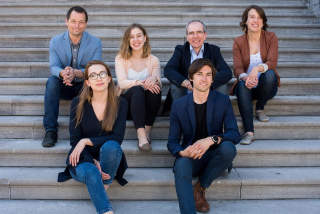 In March, CIRM welcomes new members of its team: Elli Slavitch develops a social media and communications strategy for the Centre, Olivier Séguin-Brault and Juliette Ryan-Lortie manage CIRM’s social media, and Victoria Svaikovsky assumes the coordination of the McConnell Foundation Professor of Practice program, as well as the function of administrative assistant. One of the first actions taken as part of the communications strategy is the development of a new tool: a podcast created with the recordings of lunch-seminars, a new formula preferred to the lunch-discussions.
In March, CIRM welcomes new members of its team: Elli Slavitch develops a social media and communications strategy for the Centre, Olivier Séguin-Brault and Juliette Ryan-Lortie manage CIRM’s social media, and Victoria Svaikovsky assumes the coordination of the McConnell Foundation Professor of Practice program, as well as the function of administrative assistant. One of the first actions taken as part of the communications strategy is the development of a new tool: a podcast created with the recordings of lunch-seminars, a new formula preferred to the lunch-discussions.
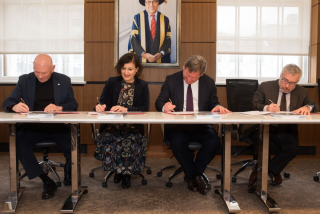 On April 20th, after a day of exchanges and discussions, CIRM, the Agirre Lehendakaria Center for Social and Political Studies and the Etxepare Basque Institute sign an agreement with the goal of encouraging collaboration in research and in teaching between the three institutions. The agreement will facilitate the movement of professors, researchers, and students who wish to deepen their research on social innovation, notably by comparing the case of the Basque Country to that of Montreal.
On April 20th, after a day of exchanges and discussions, CIRM, the Agirre Lehendakaria Center for Social and Political Studies and the Etxepare Basque Institute sign an agreement with the goal of encouraging collaboration in research and in teaching between the three institutions. The agreement will facilitate the movement of professors, researchers, and students who wish to deepen their research on social innovation, notably by comparing the case of the Basque Country to that of Montreal.
Following the annual meeting of the Executive Committee of CIRM, where the directors of the action-research axes approved new member applications, the first constituent meeting of the Board of Directors takes place on May 8th, 2018. The Board ratifies the recommendations from the Executive Committee for the new members of CIRM. Pascal Brissette, the director of CIRM, also presents activities and projects to come during the term 2018-2019. The first annual meetings of action-research axes take place in June; there, the members contribute to the drafting of a program for the coming years. CIRM also welcomes three new axis directors: Wim Remysen directs the axis “Language, belonging, and plurilingualism”, Erin Hurly joins Will Straw to co-direct “Digital culture, art, literature, and performance”, and Kevin Manaugh joins Hoi Kong and Daniel Weinstock to co-direct the axis “Governance, institutions, and citizen participation”.
Lunchtime seminars and conferences
- January 19th: Sherry Simon (French Studies, Concordia), Speaking Memory, How Translation Shapes City Life.
- January 23rd: "Value systems, equality, and inequality in different socio-economic contexts: elite London and the Mondragon Cooperative Valley", a conference by Luna Glucksberg, researcher and urban anthropologist at the International Inequalities Institute of the London School of Economics and Political Science.
- February 20th: Roundtable on "From Big Data and Open Data to Community Actions and Impacts. Which practices to Implement?".
- March 15th: Akos Verboczy, Rhapsodie québécoise. Itinéraire d'un enfant de la loi 101.
- March 29th: Jonathan Durand Folco (Université Saint-Paul), À nous la ville ! Traité de municipalisme.
- April 26th: Simon Yiu-Tsan Ng (CIRM Resident Scholar 2017-2018), "Can the Flâneur be Imperfect?".
- More information on CIRM's events can be found here.
Events supported by CIRM
- June 19th: "Montreal and Quebec in Focus", a conference organized by Éric Bélanger (Departement of Political Science, McGill) as part of the Canadian Municipal Election Study.
- March 23rd: "National Integrative Research Conference", a national symposium organized by McGill's Bachelor of Arts and Science that emphasizes interdisciplinary research of undergraduate students.
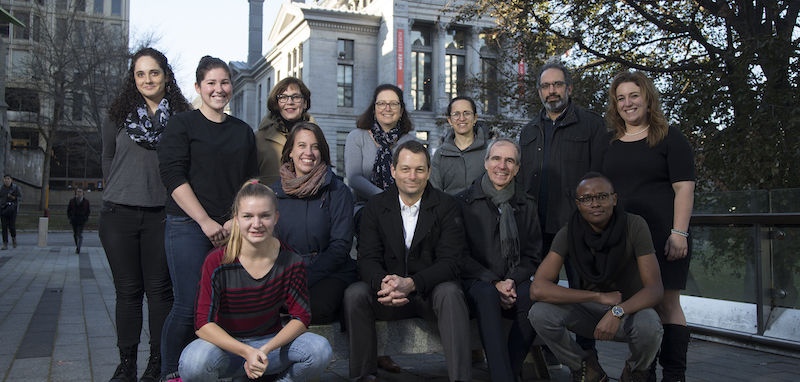
2017
Until May 2017, CIRM had provisional status granted by the Faculty of Arts. On May 25th, CIRM becomes an official research centre, as granted by the Board of Governors. This transition requires that the Centre revise the system of membership: the researchers associated with CIRM are invited to present a new membership application that must be approved by the Executive Committee and the Board of Directors of CIRM. CIRM continues its series of lunch-discussions and regularly holds conferences, giving its members and the Montreal community a chance to interact with researchers, authors, and community and municipal representatives:
Lunchtime-discussions and conferences
- January 12th: Jean-Claude Marsan, Montréal en évolution. Quatre siècles d'architecture et d'aménagement.
- March 21st: “Sharing Cities. A Case for Truly Smart and Sustainable Cities”, a conference by professor Julian Agyeman (Urban and Environmental Policy and Planning, Tufts University).
- March 23rd: “The Participatory City”, a conference by Tessy Britton (Participatory City, London).
- March 24th: "Placemaking for Peacemaking", a conference by Rony Jalkh (Visiting Fellow, Beirut).
- August 11th: Derek Hyra, Race, Class, and Politics in the Cappuccino City.
- September 7th: "Pour une poétique du rap" conference supported by the CIRM and organized by Xavier Phaneuf-Jolicoeur (McGill) and Sarah Abd El-Salam (Université de Montréal).
- October 13th: Laurent Simon, Patrick Cohendet and Benoit Sarazin, Les communautés d’innovation. De la liberté créatrice à l’innovation.
- October 30th: Roberta Ricucci, sociologist, and professor at the Department of Culture, Politics and Society of the University of Turin, Second Generations on the Move in Italy. Children of Immigrants Coming of Age.
- November 2nd: Yves Desjardins, Histoire du Mile End.
- December 7th: Adam Kahane, Collaborating with the Enemy, How to Work with People You Don’t Agree with or Like or Trust.
- January 27th: First workshop in the Montreal Manifesto for Social Innovation series: “Smart Regulation for Smart Cities”.
- March 20th: Second workshop in the Montreal Manifesto for Social Innovation series: “Urban Sustainable Development and Innovation. The City as a Commons – Perspectives from Montreal and Elsewhere”.
- May 9th: Third workshop in the Montreal Manifesto for Social Innovation series: Conference on "The future of local communities: municipalities at the heart of social and technical innovations", as part of the 85th Association francophone pour le savoir (Acfas) Congress.
- More information on CIRM's events can be found here.
Gorka Espiau returns as the Professor of Practice of the McConnell Foundation for a second year and organizes, along with Hoi Kong (Director of Research of the McConnell Foundation Professor of Practice Program and co-Director of the action-research axis “Governance, institutions, and citizen participation”), a series of workshops called The Montreal Manifesto for Social Innovation, composed of three workshops concerned specifically with the way in which personal narratives relate to collective transformations.
On March 14th and 31st, CIRM is invited by the McConnell Foundation to participate in two meetings that lead to the design of a listening platform. The participants, representatives of the university, community, and municipal sectors are asked to reflect on a structure and tools that can be used to take advantage of the many works already underway in the city that are based on listening to communities and having the community recognize the transformative potential of the resulting actions. Discussions and reflections focus on the forms that the Listening Platform, designed as a “commons,” should take, including how to establish governance, links between partners, technical needs and methodological issues. The partners involved, including Percolab, Execo, the Foundation of Greater Montréal, will meet at regular intervals to continue the discussion. A draft of the listening platform project is available on the Listening to Montreal site.
On April 20th, CIRM attends a panel in Washington, D.C. at the Wilson Center’s Urban Sustainability Laboratory to reflect on the integration of immigrants and the openness to cultural diversity in artistic performances of major urban areas. Interdisciplinary experts from McGill University address barriers to immigrant integration in the Montreal context and present initiatives and projects that aim for a more inclusive and participatory city.
CIRM is happy to support the Association international des études québécoises by hosting its 21st general assembly on May 8th, which is followed by a presentation by Robert Laliberté, the former Director-General of AIEQ. As part of the festivities for the third anniversary of Je vois/Je fais Mtl, on November 17th, BMO announces a donation of $2.25 million to CIRM to support interdisciplinary and cross-sectoral research on Montreal. The McConnell Foundation also announces the creation of the Professor of Practice program, thanks to a contribution of $1 million.
In December, CIRM releases its first publication, Vivre ensemble à Montréal. Épreuves et convivialités (“Formes” collection, Atelier 10, 2017), a collective co-directed by Annick Germain, Valérie Amiraux, and Julie-Anne Boudreau. The 24 texts that make up this work focus on common spaces in Montreal and the development of a sense of belonging in Montreal.
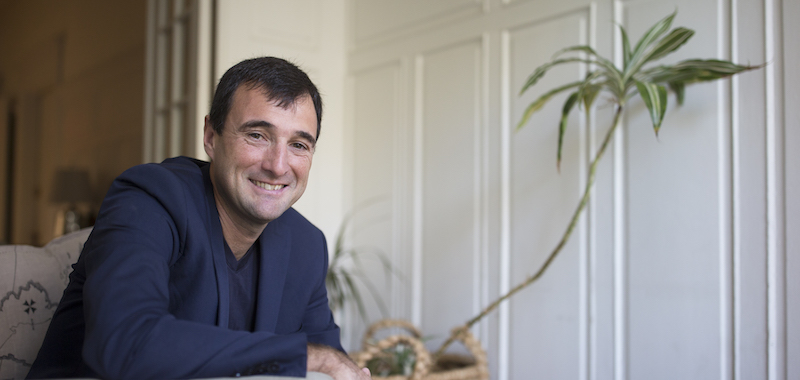
2016
The Professor of Practice Program, which aims to attract a professional from a domain related to the action-research axes of CIRM, is launched. The invited professor enhances the university curriculum through his or her teaching and participation in CIRM’s activities. CIRM welcomes Gorka Espiau to act as the first Professor of Practice, for the term 2016-2017. He travels between Montreal, London, and Bilbao, where he contributes notably to the work at the Agirre Lehendakaria Center for Social and Political Studies.
On November 17th, Gorka Espiau holds a conference entitled "The Deconstruction of the Bilbao Guggenheim Effect" as part of the Urban Studies Fall Seminar series in the School of Urban Planning. On June 16th, the City Hall of Montreal unveiled the guiding principles and the lines of action of the city’s policy on youth entitled Naître, grandir, s’épanouir à Montréal: de l’enfance à l’adolescence which aims to contribute to the fulfillment of all children in the city. CIRM is approached to establish an interdisciplinary advisory committee whose mandate is to support the city in achieving the objectives of the Policy, but also, through research, to make known innovative solutions to the challenges faced by young Montrealers.
Researchers from various disciplines gather on June 30th as part of a study day devoted to the theme of “living together” (le vivre ensemble) in big cities. The discussions and presentations that emerge from this day inspire the publication of the collective Vivre ensemble à Montréal. Épreuves et convivialitésin 2017.
In August 2016, at the initiative of CIRM, Éditions Leméac publishes a collection of essays edited by Pascal Brissette and Mathieu Lapointe. Corruption. Montréal et ses démons brings together contributions of researchers from multiple domains, including Harold Bérubé, Laurence Bherer, Sandra Breux, Marc-Antoine Dilhac, Mathieu Lapointe, Danielle Morin, Robert Sparling, and Daniel Weinstock, and contributes to the reflection on the corruption and collusion that has plagued the Quebec metropolis. which focuses on corruption and collusion in Montreal.
The first lunchtime discussion at CIRM occurs on October 27th with the author of Chronique des arts de la scène, Marie-Thérese Lefebvre.
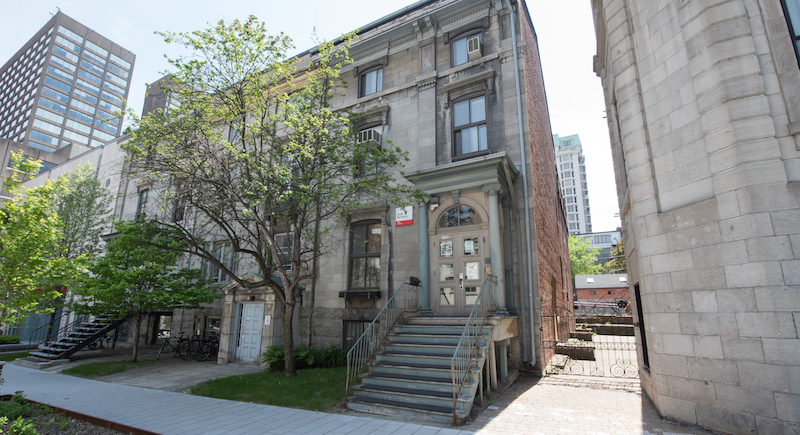
2015
Pascal Brissette's mandate as Director of CIRM has been extended two more years (2015-2017). In December 2014, CIRM relocated to its new premises at 3438 McTavish St. Since the new year, CIRM has organized bimonthly meetings, inviting scholars to present their projects associated with the research and archival centers to which they belong (Villes Régions Monde, CRISES, Archives de Montréal) and/or their publications related to the field of Montreal studies. Participants included the following:
- January 15: Mario Robert (ed.). Quand les archives racontent Montréal: 110 pièces d'exception. Quebec: Publications du Québec, 2013. Mario Robert, chef de la section des archives Ville de Montréal, gave a presentation of the book. Both Sherry Olson (McGill) and Sylvie Taschereau (UQTR) commented.

- Janvier 29: Catherine Charlebois and Paul-André Linteau (eds.). Quartiers disparus, Montreal: Éditions Cardinal, 2014. Jean-François Leclerc, director of the Centre d’histoire de Montréal, Catherine Charlebois, museologist, and Paul-André Linteau, (UQAM) gave presentations. Francine Dansereau (INRS) commented.
- February 12: Sherry Simon. Villes en traduction. Calcutta, Trieste, Barcelone et Montréal. Montreal: Presses de l'Université de Montréal, 2013. Sherry Simon (Concordia) presented her book. Gillian Lane-Mercier (McGill) and Robert Schwartzwald (Université de Montréal) both commented.

- February 26: Benoît Lévesque, Jean-Marc Fontan and Juan-Luis Klein (eds.). L'innovation sociale: les marches d'une construction théorique et pratique. Montréal: Presses de l’Université du Québec, 2014. Juan-Luis Klein and Benoît Léger, cofounders of the Centre de recherche sur les innovations sociales (CRISES) at UQAM gave presentations of the book. Monique Vallée, responsible for social and community development and homelessness at the City of Montreal, and Vincent Van Schendel, director of Territoires innovants, both commented.
- Mars 26: Mathieu Lapointe. Nettoyer Montréal. Les campagnes de moralité publique, 1940-1954. Montreal: Septentrion, 2014.
 Mathieu Lapointe, postdoctoral fellow at the McGill Institute for the Study of Canada, presented his book. Sandra Breux (INRS) commented.
Mathieu Lapointe, postdoctoral fellow at the McGill Institute for the Study of Canada, presented his book. Sandra Breux (INRS) commented. - 23 avril: Léon Robichaud, Harold Bérubé and Donald Fyson (eds.). La gouvernance montréalaise: de la ville-frontière à la métropole. Montréal: Éditions MultiMondes, 2014. Harold Bérubé, (Université de Sherbrooke) and Donald Fyson (Université Laval) discussed the central arguments of the book.
On June 12, CIRM hosted members of the Association internationale d’études québécoises [AIEQ] at their annual general meeting. To continue McGill’s support of AIEQ’s activities, Olivier Marcil, Vice-Principal of Communications and External Relations, announced that in addition to its annual contribution of 5,000$ to the association, McGill will cover the membership fees of AIEQ for 15 McGill graduate students and will offer a two-month internship at AIEQ, worth $5,000, to a Faculty of Arts student at McGill.
2014
Pascal Brissette, back from a one-year sabbatical, was appointed director of CIRM. An executive committee made up of the following members was named: Annick Germain (INRS), Gillian Lane-Mercier (McGill), Sherry Olson (McGill), William Straw (McGill), and Daniel Weinstock (McGill). In September, members adopted the following two primary mandates of CIRM:
- to foster emerging research in Montreal studies and to unite the research being conducted within various disciplines and universities
- to develop partnerships, sets of themes, as well as fundamental and applied research projects on the economic, social, cultural, and governmental spheres of Montreal
On November 17, Pascal Brissette and Daniel Weinstock presented CIRM to Montrealers during an event organized by BMO, Je Vois Montreal. At the end of the day, Pascal Brissette, representing CIRM, signed a commitment to increase and diversify its membership (to 60 researchers from all Montreal universities by 2017); advance research through scholarship, awards, and aid to scholarly research programs; and, support knowledge transmission and partnerships between researchers and citizens through an interactive Web platform.
2013
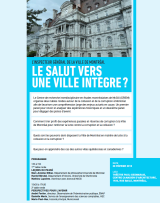 On February 28, CIRM held a one-day symposium, « L’inspecteur général de la ville de Montréal. Le salut vers une ville intégrée? » (“The Inspector General of the City of Montreal. The solution towards an integrated city?”). This event included a roundtable named « Leçons du passé » (“Lessons from the Past”), wherein participants reflected upon corruption and collusion in Montreal. Roundtable contributors were Marc-Antoine Dilhac (Université de Montréal), Harold Bérubé (Université de Sherbrooke), Mathieu Lapointe (McGill Institute for the Study of Canada), André Fortier (Director, Observatoire de l’Administration publique), Danielle Morin (HEC), and Mario Paul-Hus (Municonseil).
On February 28, CIRM held a one-day symposium, « L’inspecteur général de la ville de Montréal. Le salut vers une ville intégrée? » (“The Inspector General of the City of Montreal. The solution towards an integrated city?”). This event included a roundtable named « Leçons du passé » (“Lessons from the Past”), wherein participants reflected upon corruption and collusion in Montreal. Roundtable contributors were Marc-Antoine Dilhac (Université de Montréal), Harold Bérubé (Université de Sherbrooke), Mathieu Lapointe (McGill Institute for the Study of Canada), André Fortier (Director, Observatoire de l’Administration publique), Danielle Morin (HEC), and Mario Paul-Hus (Municonseil).
On October 18 and 19, bringing together over 35 researchers representing all of Montreal’s universities, CIRM was officially launched with a conference entitled « La créativité urbaine en questions : le cas de Montréal ville creative » (“Urban Creativity in Questions: The Case of Montreal, Creative City”) and with Witold Rybczynski’s public lecture, “Two Walks with Frederick Law Olmsted” on October 21. Gillian Lane-Mercier, Will Straw, and Daniel Weinstock assumed the positions of co-directors. Stéphan Gervais undertook the role of scientific coordinator.

2012
After meeting with 30 researchers and administrators from McGill and other Montreal universities, Stéphan Gervais and Pascal Brissette filed a report favoring McGill’s support for the creation of an interdisciplinary research centre dedicated to the study of Montreal. Its primary purpose would foster and bring together research pertaining to the field of Montreal Studies and transfer knowledge between both researchers and the public. The report stated that unlike Quebec Studies, structured around mature research centres (such as CRILCQ, CIÉQ, CÉTUQ, and GRÉLQ), Montreal Studies are essentially done in disciplinary silos by individual scholars and research groups. CIRM contends that Montreal is a complex and multifaceted subject that ought to be studied in an interdisciplinary fashion:
“One cannot synthesize Quebec using a case study such as Montreal because of its complexity and the contradictions that are inherent to this metropolis. At the very least, research on Montreal can provide a window onto Quebec society. It is an ideal laboratory to initiate collaborative work involving researchers from disciplines so varied as Law, Architecture, Music, Geography, Sociology, Urban and Environmental Studies, and the History of Religions, Literature and Medicine.”
Thanks to a start-up grant that the Associate Vice-Principal of Research that Rosie Goldstein gave to CIRM, the Centre brought together its first group of researchers for a series of workshops that began in September 2012.
2011
Just before the 50th anniversary of the Centre d’études canadiennes-françaises’s inauguration [1963], which became the Quebec Studies Program (QSP) in 1993, the Dean of Arts established a committee mandated to review the future of Quebec Studies at McGill. Under the chairmanship of the director of QSP Pascal Brissette, professor in the Department of French Language and Literature, the committee created its mission to reflect upon the QSP’s capacity to tackle challenges to ensure the vitality of Quebec Studies at McGill. This team was composed of Michel Biron (Department of French Language and Literature), Gretta Chambers (Chancellor Emeritus), Catherine Desbarats (Department of History and Classical Studies and a former director of the QSP), Stéphan Gervais (Quebec Studies coordinator, QSP), Jarrett Rudy (Department of History and Classical Studies and former director of the QSP), Yvan Lamonde (Department of French Language and Literature), Roderick Macdonald (Faculty of Law and former member of the advisory committee to the QSP), and Will Straw (Department of Art History and Communications and director of the McGill Canadian Studies Institute). After much discussion, the committee agreed that since the QSP, which is a teaching program and not a research unit, could not act as a lever to develop and redeploy Quebec Studies at McGill, a new research centre had to be planned.
“The time has arrived for McGill to reposition itself in the field of research on Quebec Studies, to take advantage of its status as an Anglophone university rooted in Quebec as well as its international influence, and, through its engagement in research on Quebec, to assert the unique role that it can play in the development of Quebecois society.”
Following the report that was filed in December 2011, Dean of Arts Christopher Manfredi issued a directive to Pascal Brissette to “consult and meet with researchers from within McGill and outside of McGill in order to reflect on the integration of a new research centre on Quebec studies into the existing structures within the university, with the latter working hand in hand with other existing research centres on Quebec.”

